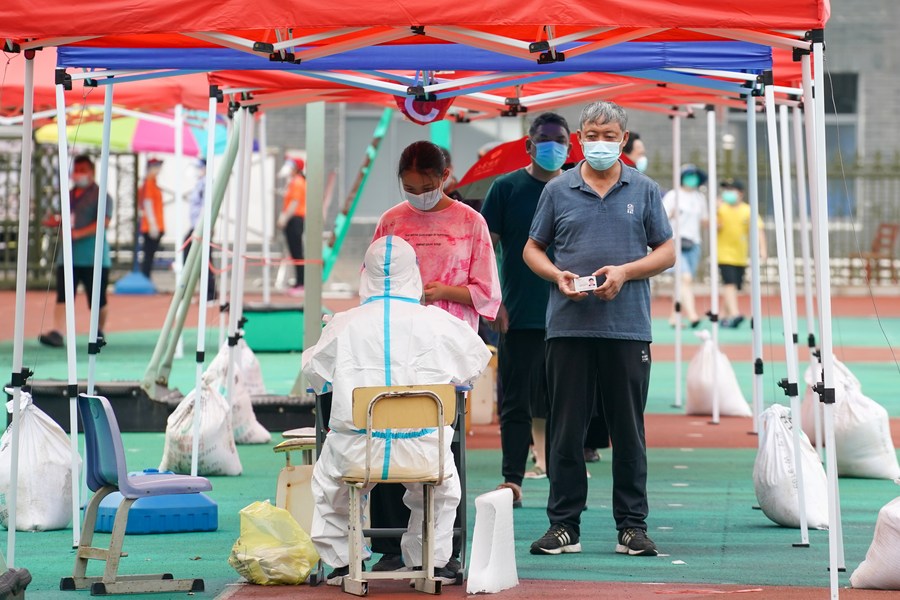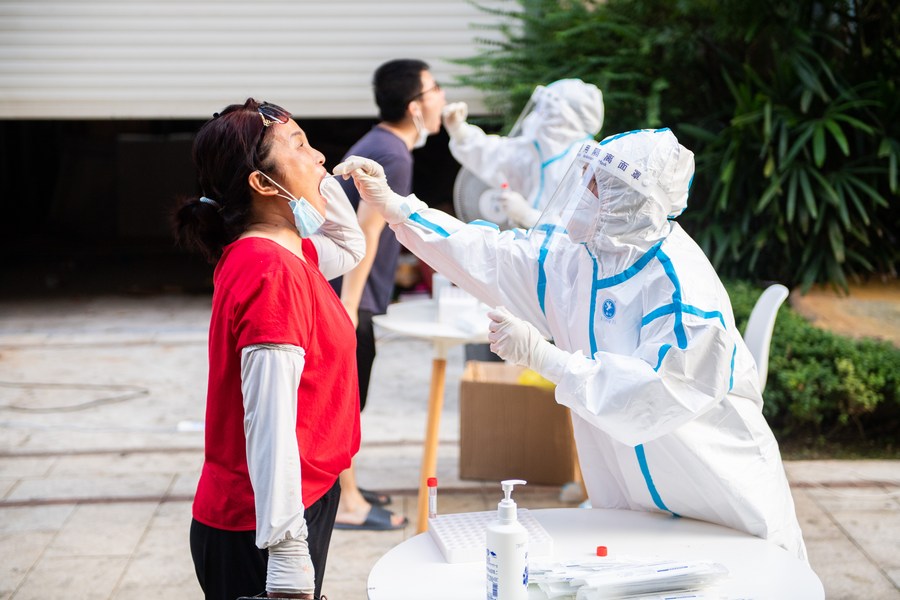Yangzhou, a city in east China's Jiangsu Province, has beefed up measures to race against time to contain the spread of COVID-19 caused by the highly contagious Delta variant.
Local authorities had asked people living in residential communities under closed-off management not to leave their homes, the city's epidemic control and prevention headquarters said at a press briefing Monday.

Residents register for COVID-19 nucleic acid tests at a testing site in Guangling District of Yangzhou, east China's Jiangsu Province, Aug. 9, 2021. (Xinhua/Li Bo)
After reporting new COVID-19 cases each day for the past few days, Yangzhou has become a new area marked with cluster infections after Nanjing, the provincial capital of Jiangsu, about 100 km away. The city had reported a total of 346 locally transmitted confirmed cases by Sunday.
CHALLENGE
The Chinese mainland on Sunday reported 94 new locally transmitted cases, including 38 in Jiangsu, all of which were reported in Yangzhou.
"Epidemic control is now the top priority, and Yangzhou has confronted a complicated situation as the city is in a period of a concentrated outbreak," said Wu Zhenglong, governor of Jiangsu.
"The proportion of elderly people infected with coronavirus is very high in Yangzhou, which poses a challenge to medical treatment, but we are trying our best to cure the patients," said Zhou Minghao, deputy director of the Jiangsu Provincial Health Commission.
The epidemic in Yangzhou was caused by the concentration of people in chess-poker rooms -- entertainment sites for the elderly particularly. It is expected to be brought under control within two to three incubation periods, said Gao Shan, an associate professor at Nankai University.
Zhangjiajie, a popular tourist city in central China's Hunan Province, has launched the second round of all-inclusive nucleic acid testing to stem the new COVID-19 infections.

Medical workers take swab samples from residents for COVID-19 nucleic acid testing in Zhangjiajie, central China's Hunan Province, Aug. 4, 2021. (Xinhua/Chen Sihan)
Prior to that, the city launched three rounds of large-scale testing in higher risk areas for COVID-19 after new infections emerged.
After the first local case was reported, authorities in Hunan took swift epidemic prevention and control response, which also has the full cooperation of the general public, said Hu Chengping, a medical expert with the Xiangya Hospital in Changsha, capital of Hunan Province.
China has also reported new local infections in other parts of the country, with the first infections reportedly having exposure to the Nanjing airport.
There is an increasing risk of the epidemic spreading as sporadic outbreaks took place in multiple places during the peak of summer travel, according to Mi Feng, a spokesperson of the National Health Commission (NHC). Whenever there is an outbreak, the most stringent measures must be taken to bring the epidemic under control as swiftly as possible, Mi said.






